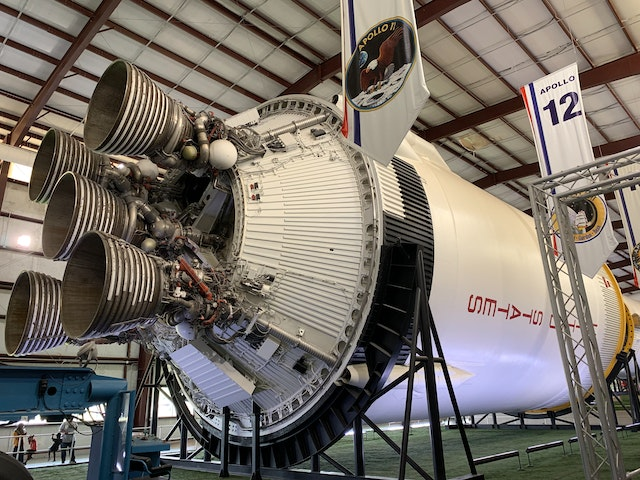In the aerospace industry, where safety and precision are paramount, adhering to rigorous quality standards is essential. Two prominent quality management systems for aerospace companies are ISO 9001 and AS9100, which are crucial in ensuring excellence and reliability in aerospace operations.
These aerospace quality standards serve as guiding beacons for organizations to uphold the highest levels of quality and safety. This blog will explore the key differences between ISO 9001 and AS9100, their respective benefits, and how they contribute to building a strong foundation of quality in the aerospace sector. Understanding these standards is vital for aerospace companies aiming to elevate their reputation and deliver top-notch products and services.
The ISO 9001
The aerospace industry’s intricate demands necessitate specialized quality management systems that go beyond generic standards. ISO 9001, an international standard applicable to all industries, sets a strong foundation for quality management. Its core principles of customer focus, continuous improvement, and a process-based approach resonate across various sectors. However, ISO 9001 alone can’t account for the specificity required to address the unique challenges inherent in aerospace manufacturing.
The AS9100
AS9100, on the other hand, caters precisely to the aerospace industry’s needs. This aerospace quality standard builds upon ISO 9001’s fundamentals while incorporating additional aerospace-specific criteria. These include stringent controls over design, configuration management, and supply chain traceability, ensuring a higher level of safety and reliability in aerospace products and services.
The Differences Between ISO 9001 And AS9100
Both ISO 9001 and AS9100 play significant roles in shaping the quality management practices of aerospace companies. However, they have some differences, mainly in terms of their scope.
Industry-Wise Scope
The first key (and obvious) difference between ISO 9001 and AS9100 is their targeted industry focus. ISO 9001 applies to various sectors, allowing flexibility in its implementation. On the other hand, AS9100 is specifically crafted for the aerospace sector, addressing the specific needs and complexities of aerospace manufacturing, design, and maintenance.
Focus On Risk Management
Another notable difference is the emphasis on risk management. AS9100 places significant importance on risk assessment and mitigation, as aerospace companies must deal with critical safety issues and potential hazards when making jets and rockets.
This aerospace quality standard ensures a proactive approach to identifying and addressing risks, enhancing product safety and reliability. For that reason, NASA uses AS9100 for all of its systems.
Supplier Management
AS9100 also places a strong emphasis on supplier management. Aerospace companies rely on a vast network of suppliers, making effective supplier control essential for maintaining quality and consistency in the supply chain.
While the supply chain is a necessary focus of the ISO 9001 standard, its implications manifest differently in practice. The AS9100 aerospace quality standard mandates stringent supplier evaluation, qualification, and monitoring processes to ensure that only reliable suppliers are engaged.
Product Realization
Product realization refers to the process of transforming product requirements into a finished product through design, development, manufacturing, testing, and delivery.
AS9100 sets specific requirements for product realization in the aerospace industry. Since the standard focuses solely on aerospace, it can cover detailed planning, verification, validation, and testing processes, ensuring that aerospace products meet the highest standards of safety, reliability, and performance.
Regulatory Compliance
Aerospace companies must demonstrate compliance with industry-specific regulations, certifications, and safety standards to achieve a reputable aerospace quality standard. While ISO 9001 requires compliance with applicable laws and regulations, AS9100 places even greater importance on adhering to strict aerospace regulations.
Benefits Of ISO 9001 For Aerospace Companies
ISO 9001 can bring two large-scale benefits to aerospace companies:
1. Improved Quality and Customer Satisfaction
Implementing ISO 9001 as the quality standard in aerospace companies ensures adherence to robust quality management practices, leading to consistent and reliable products and services. By focusing on customer satisfaction and continuous improvement, ISO 9001 helps aerospace companies deliver superior-quality products that meet customer expectations, enhancing their overall satisfaction.
2. Enhanced Efficiency and Cost Savings
ISO 9001 promotes streamlined processes, effective resource management, and reduced waste in aerospace operations. Through efficient workflows and optimized resource allocation, organizations can achieve cost savings, improving their bottom line. The standard’s emphasis on continuous improvement fosters a culture of efficiency and innovation, driving aerospace companies to operate more effectively in a competitive market.
Benefits Of AS9100 For Aerospace Companies
AS9100 certification offers several significant advantages for aerospace companies, providing them with a competitive edge and enhancing their overall performance.
Higher Aerospace Quality Standards
AS9100 focuses on the stringent quality and safety requirements specific to the aerospace industry. By adhering to this standard, aerospace companies ensure that their products and services meet the highest levels of quality, reliability, and safety. The implementation of AS9100 helps organizations identify and address potential risks, minimizing the likelihood of errors, defects, and accidents, which are critical considerations in aerospace operations.
Improved Client Satisfaction
AS9100 certification serves as a powerful symbol of an aerospace company’s commitment to excellence. This recognition inspires confidence in clients, demonstrating that the organization operates with the highest aerospace quality standards. Clients can trust that AS9100-certified companies deliver reliable, safe, and high-quality products, fostering long-term partnerships and repeat business.
Regulatory Compliance And Wider Market Access
The aerospace industry is subject to strict regulations and certifications to ensure airworthiness and safety. AS9100 helps aerospace companies navigate these complex regulatory frameworks, ensuring compliance with industry-specific requirements. Achieving AS9100 certification opens doors to global markets, as many international aerospace organizations and governments require suppliers to be AS9100 certified.
Find Reliable AS9100 Consulting Services At BCS
Both ISO 9001 and AS9100 play vital roles in quality management, but for aerospace industries, AS9100 certification is imperative to address their unique requirements effectively. While ISO 9001 lays a strong foundation, AS9100 refines and narrows down those standards specifically for the aerospace sector, ensuring safety, reliability, and compliance.
For aerospace companies seeking expert guidance, BCS stands as a leading ISO consulting firm. With a team of seasoned ISO 9001 quality management system and AS9100 certification consultants and a range of consulting services, we are well-equipped to assist aerospace organizations in achieving the highest industry standards. Call us for further information.




